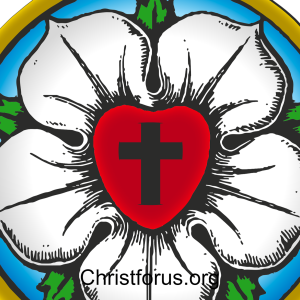Christ for Us
Christforus.org has been a source of doctrinally sound sermons in text and audio form for over twenty years. Now the audio of these sermons are available via podcast. Old sermons by Rev. Rolf Preus and new sermons by Rev. James Preus will be uploaded. Now there is a weekly Bible Study Podcast airing a new episode every Thursday. You can read the outlines to the Bible Studies at Christforus.org.
Episodes

Wednesday Nov 13, 2024
Wednesday Nov 13, 2024
Third to last Sunday in the Church Year sermon preached by Rev. Rolf Preus in 2011 on the text Matthew 24:15. You can read the text of the sermon at Christforus.org.

Wednesday Nov 13, 2024
Wednesday Nov 13, 2024
Trinity 24 sermon preached by Rev. James Preus on the text Matthew 9:18-26. You can read the entire sermon on Christforus.org.

Thursday Nov 07, 2024
Thursday Nov 07, 2024
You can read the sermon by Rev. Rolf Preus on Matthew 9:18-26 on Christforus.org.

Thursday Nov 07, 2024
Thursday Nov 07, 2024
Sermon preached on Rev. 7:9-17, 1 John 3:1-3, and Matthew 5:1-2 for All Saints Day observed. You can read the text at Christforus.org.

Thursday Oct 31, 2024
Thursday Oct 31, 2024
Sermon Preached by Rev. Dr. Robert Preus in Kramer Chapel, September 11th, 1986 on the text, Isaiah 50.
Source: https://media.ctsfw.edu/Person/Details/227#

Wednesday Oct 30, 2024
Wednesday Oct 30, 2024
Sermon preached by Rev. James Preus on Romans 3:19-28 for Reformation Sunday. You can read the text at Christforus.org.

Thursday Oct 24, 2024
Thursday Oct 24, 2024
Episode 24 for the Christ for Us Bible Study Podcast. You can read the outline on Christforus.org.

Wednesday Oct 23, 2024
Wednesday Oct 23, 2024
Trinity 21 sermon preached by Rev. James Preus on John 4:46-54. You can read the entire sermon on Christforus.org.

Wednesday Oct 16, 2024
Wednesday Oct 16, 2024
Sermon preached by Rev. James Preus on Matthew 22:1-14 for Trinity 20. You can read the entire sermon on Christforus.org.

Thursday Oct 10, 2024

Christ for Us
Christ for Us is a source of Lutheran theology through sermons, Bible studies, and papers, some old and some new, all dedicated to clear biblical doctrine focused on Christ crucified for us. Rev. James Preus is the current editor. He shares his own sermons and Bible studies as well as sermons and papers given by his father, Rev. Rolf Preus, grandfather, Rev. Dr. Robert Preus, as well as his brothers.








